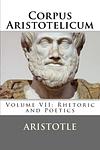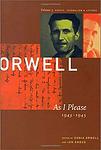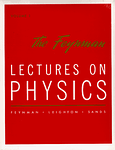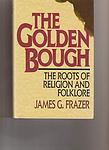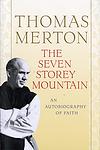The Greatest "Nonfiction" Books of All Time
Click to learn how this list is calculated.
This list represents a comprehensive and trusted collection of the greatest books. Developed through a specialized algorithm, it brings together 284 'best of' book lists to form a definitive guide to the world's most acclaimed books. For those interested in how these books are chosen, additional details can be found on the rankings page.
Genres
Countries
Date Range
Reading Statistics
Click the button below to see how many of these books you've read!
Download
If you're interested in downloading this list as a CSV file for use in a spreadsheet application, you can easily do so by clicking the button below. Please note that to ensure a manageable file size and faster download, the CSV will include details for only the first 500 books.
Download-
101. Persepolis by Marjane Satrapi
This graphic novel is a memoir that provides a personal account of the author's childhood and young adult years in Iran during and after the Islamic revolution. The story portrays the impact of war, political upheaval, and religious extremism on ordinary people, while also exploring themes of identity, resilience, and the power of storytelling. Despite the harsh realities the protagonist faces, the narrative also includes moments of humor and warmth, providing a nuanced view of life in Iran during this tumultuous period.
-
102. A Distant Mirror by Barbara Tuchman
"A Distant Mirror" is a historical narrative that vividly depicts the calamitous 14th century, a time marked by the Black Death, religious strife, and the Hundred Years War. The book follows the life of a French nobleman, offering a detailed account of his experiences and the broader social, political, and cultural transformations of the era. The author draws parallels between the 14th century and the 20th century, highlighting recurrent patterns in history such as warfare, pandemics, and societal unrest.
-
103. Mythology by Edith Hamilton
This book is a comprehensive guide to ancient Greek, Roman, and Norse mythologies, providing detailed accounts of various gods, goddesses, heroes, and other mythological creatures. It includes well-known stories like the Odyssey and the Iliad, along with lesser-known tales, and analyzes their significance in the cultures they originated from. The book also delves into the origins of these myths and their influence on later civilizations, offering readers a deep understanding of ancient cultures and their belief systems.
-
104. Against Interpretation by Susan Sontag
This book is a collection of essays that challenge the traditional methods of interpretation and criticism of art and culture. The author argues that in our attempt to interpret and find deeper meaning, we often overlook the sensory experience of the work itself. The book encourages readers to experience art in its raw form, focusing on the form, color, and sounds, rather than trying to decipher a hidden meaning. It is a call for a new, more direct approach to consuming art and culture.
-
105. The Praise of Folly by Erasmus
This satirical work is a critique of the practices of the Church and the wider social behavior of the time. Narrated by Folly, the female personification of foolishness, the book humorously criticizes various aspects of society such as superstitious religious practices, scholarly pedantry, and the excesses of the upper classes. The book is a bold critique of its time, using humor and irony to expose the follies of its society.
-
106. The Principles of Psychology by William James
This comprehensive work delves into the complex subject of psychology and its fundamental principles. The author explores a wide range of topics including the functions of the brain, habits, the stream of consciousness, the self, attention, memory, and emotions. He combines philosophy and psychology to present a detailed analysis of human behavior and thought processes. The book is considered a classic in the field of psychology and continues to influence modern psychological theory.
-
107. The Autobiography of Benjamin Franklin by Benjamin Franklin
This book is an autobiography of one of America's founding fathers, detailing his life from childhood to adulthood. The author shares his journey from humble beginnings as a printer's apprentice to becoming a successful inventor, writer, businessman, and statesman. The book provides an insight into his thoughts and philosophies on various subjects such as education, self-improvement, and public service, offering a unique look at the early American history through his eyes.
-
108. Orientalism by Edward W. Said
This book is a critical examination of Western attitudes towards the East, particularly the Middle East, and how these attitudes have shaped and continue to shape Western policies and perceptions. The author argues that the West has a long history of viewing the East as the "other," exotic and inferior, and that this view has been institutionalized through academic disciplines, literature, and media. This "Orientalism," as the author calls it, has served to justify colonialism and imperialism, and continues to influence Western attitudes and policies towards the East today.
-
109. Corpus Aristotelicum by Aristotle
The "Corpus Aristotelicum" is a collection of texts by an ancient Greek philosopher, providing an extensive exploration of numerous fields of knowledge, such as metaphysics, ethics, logic, politics, biology, and poetry. These works have been instrumental in shaping Western philosophy and have had a profound influence on a wide range of subjects, including science, theology, and politics. The collection is known for its systematic and logical approach, and for its groundbreaking ideas that continue to stimulate intellectual discourse.
-
110. Letters to a Young Poet by Rainer Maria Rilke
This book is a collection of 10 letters written by a renowned poet to a young aspiring poet, offering advice and guidance on matters of life, love, and the pursuit of poetry. The author encourages the young poet to look inward for inspiration and to embrace solitude as a means of self-discovery. He also emphasizes the importance of patience, personal growth, and the necessity of experiencing life's hardships to truly understand and depict the human condition in poetry.
-
111. Mere Christianity by C. S. Lewis
"Mere Christianity" is a theological book that explores the common ground upon which all of those of Christian faith stand. It provides an intellectual defense of Christianity that centers on the Law of Nature, arguing that God is behind this law. The book also explores Christian values, the cardinal virtues, and the theological virtues, ultimately arguing for the reasonableness of Christianity. The final section of the book discusses the doctrine of the Trinity and the process of becoming a Christian.
-
112. Collected Essays of George Orwell by George Orwell
This book is a compilation of essays by a renowned author, known for his sharp wit and critical eye. It covers a wide range of topics, from politics and language to literature and culture. The author's insightful and often provocative viewpoints provide a unique perspective on the world, challenging readers to question their own beliefs and assumptions. His straightforward writing style and keen observations make these essays as relevant today as when they were first published.
-
113. The Feynman Lectures on Physics by Richard P. Feynman
This book is a comprehensive collection of lectures on physics by a renowned physicist, covering everything from classical mechanics to quantum mechanics, electromagnetism, and statistical mechanics. These lectures, designed to be accessible to those without a deep background in the subject, offer a unique and insightful perspective on the fundamental principles of physics, combining rigorous scientific explanation with engaging anecdotes and analogies. The book is widely regarded as an essential resource for anyone interested in or studying the field of physics.
-
114. The Female Eunuch by Germaine Greer
This book is a seminal feminist text that explores the oppression of women in society. It critiques the traditional roles and expectations of women in the mid-20th century, arguing that societal norms and conventions force women into a secondary, submissive role, effectively castrating them. The book encourages women to reject these norms and to embrace their own sexual liberation, arguing for the need for a revolution in the way women perceive themselves and their place in society.
-
115. An Essay Concerning Human Understanding by John Locke
This philosophical work explores the concept of human understanding, proposing that all knowledge is derived from experience. The author argues against innate ideas, suggesting instead that the mind is a blank slate at birth, filled over time through sensory and reflective experiences. The book covers a wide range of topics, including language, memory, identity, and the limits of human knowledge, and is considered a foundational text in empiricism.
-
116. The Golden Bough by James George Frazer
"The Golden Bough" is a comprehensive study on mythology and religion, exploring the common themes found in different cultures around the world. The author uses a wide range of sources to argue that human belief progressed through three stages: primitive magic, replaced by religion, which in turn was replaced by science. The book delves into various rituals and customs, including the concept of the dying god in mythology and the role of fertility rites in agriculture. The author's theories have had a profound influence on both literature and anthropology.
-
117. The Seven Storey Mountain by Thomas Merton
This book is an autobiography of a man who, after a youth filled with worldly experiences and ambitions, converts to Catholicism and chooses to live his life in a Trappist monastery. His journey from a secular life to a deeply spiritual one is filled with introspection and profound insights about the nature of faith and the quest for a meaningful life. His story is a powerful testament to the pull of spiritual enlightenment and the peace that comes from dedicating one's life to a higher purpose.
-
118. History of My Life by Giacomo Casanova
"History of My Life" is an autobiography of an Italian adventurer and author, who is best remembered for his often complicated and elaborate affairs with women. The book offers a fascinating insight into his life, travels, and encounters. It provides an intimate look at the social customs and life of the 18th century, as well as the author's personal philosophies on a variety of subjects, including love, luck, and the importance of maintaining a sense of humor.
-
119. On the Genealogy of Morality by Friedrich Nietzsche
This philosophical work is a critical exploration of the origins and development of moral values. The author challenges conventional notions of good and evil, arguing that they evolved not from any inherent sense of justice, but rather as a means of exerting control over society. He presents a historical analysis of how morality has been used as a tool by the powerful to dominate the weak, and critiques the influence of religion and societal norms on our understanding of morality. The book is a profound examination of the nature of morality, its origins, and its impact on human behavior.
-
120. The Open Society by Karl Popper
This book is a critique of totalitarianism and a defense of liberal democracy. The author argues against the concept of a perfect, immutable society, instead advocating for an "open society" that allows for constant change and improvement. He criticizes theories of historical determinism and the notion of "the collective", emphasizing the importance of individual freedom and human rights. The book also examines and challenges the philosophies of Plato, Hegel, and Marx, linking their ideas to the rise of fascism and communism in the 20th century.
-
121. Reflections on the Revolution in France by Edmund Burke
This book is a political pamphlet written in the 18th century, where the author criticizes the French Revolution, arguing that it has gone too far in its quest for radical change. He asserts that the revolutionaries, in their rejection of tradition and their embrace of abstract notions of liberty and equality, have overlooked the complexities of real social and political life. The author advocates for gradual, prudent reform rather than sudden, violent change and emphasizes the importance of tradition and inherited institutions.
-
122. My Family And Other Animals by Gerald Durrell
In this humorous and heartwarming memoir, a young boy named Gerald Durrell recounts his unconventional upbringing on the idyllic Greek island of Corfu. Surrounded by a colorful cast of eccentric family members and a menagerie of unique animals, Gerald's adventures and misadventures bring joy and laughter to readers as he navigates the wonders of nature and the challenges of growing up. With vivid descriptions and witty anecdotes, this book is a delightful tribute to the beauty of the natural world and the bonds of family.
-
123. Symposium by Plato
In "Symposium", a group of notable men including philosophers, playwrights, and politicians gather at a banquet and decide to each give a speech in praise of the god of love. Each speech presents a different perspective on love, ranging from the purely physical to the spiritual. The dialogue culminates with the speech of Socrates, who presents a philosophical view of love as a means of ascending to contemplation of the divine.
-
124. Notes of a Native Son by James Baldwin
This book is a collection of essays that vividly capture the author's life in Harlem, his travels in Europe, and his views on everything from the sweet music of black church revivals to the biting prejudice of the 'then' contemporary world. It's an exploration of racial, sexual, and class distinctions in both Western societies and the American society. The author's reflections on his experiences as a black man in white America are profoundly insightful and continue to resonate today.
-
125. The Snow Leopard by Peter Matthiessen
"The Snow Leopard" is a travelogue that recounts the author's two-month journey in the Himalayas with naturalist George Schaller. The duo trek through the rugged and remote mountains of Nepal on a quest to study the rare blue sheep and possibly spot the elusive snow leopard. The book is as much a spiritual journey as it is a physical one, with the author seeking solace and understanding following the death of his wife. The narrative explores themes of grief, nature, and Buddhism, offering a poignant and introspective look at life and loss.
Reading Statistics
Click the button below to see how many of these books you've read!
Download
If you're interested in downloading this list as a CSV file for use in a spreadsheet application, you can easily do so by clicking the button below. Please note that to ensure a manageable file size and faster download, the CSV will include details for only the first 500 books.
Download







